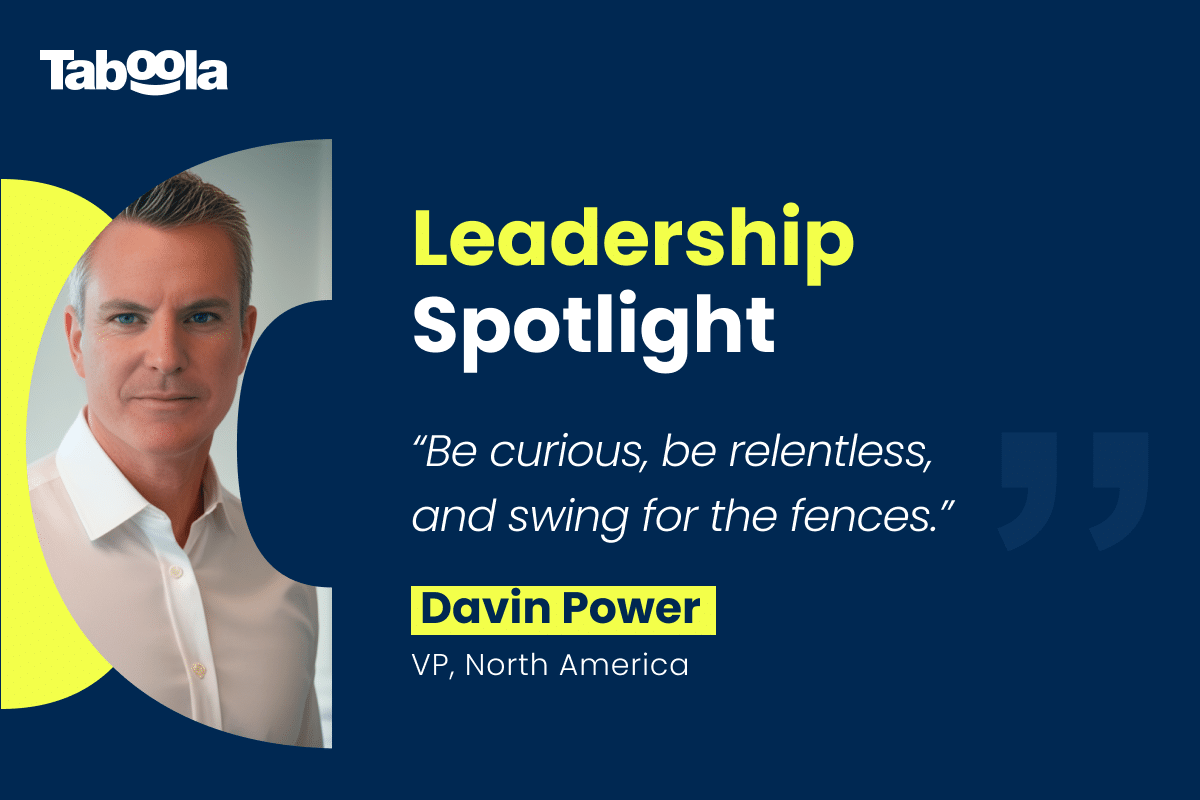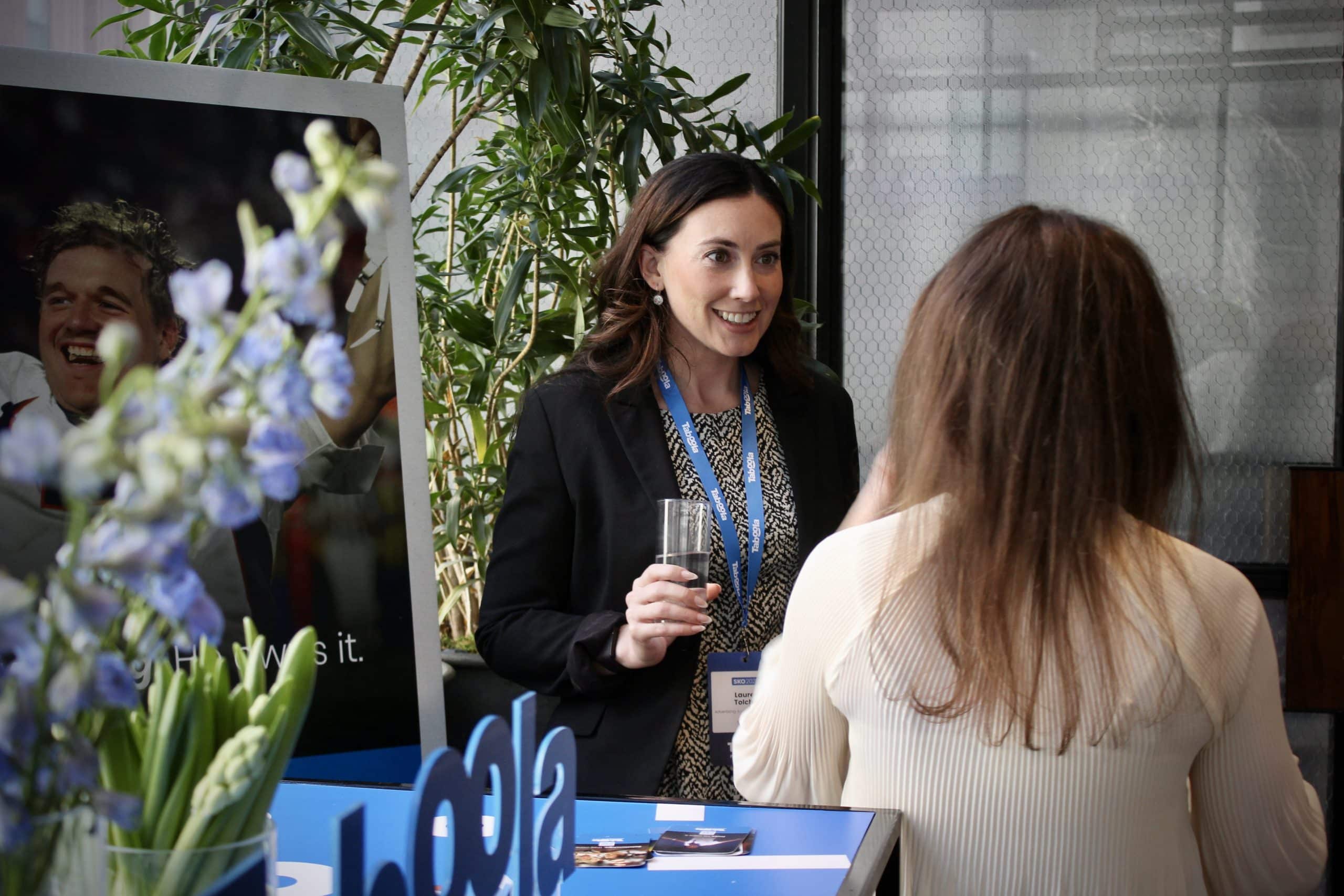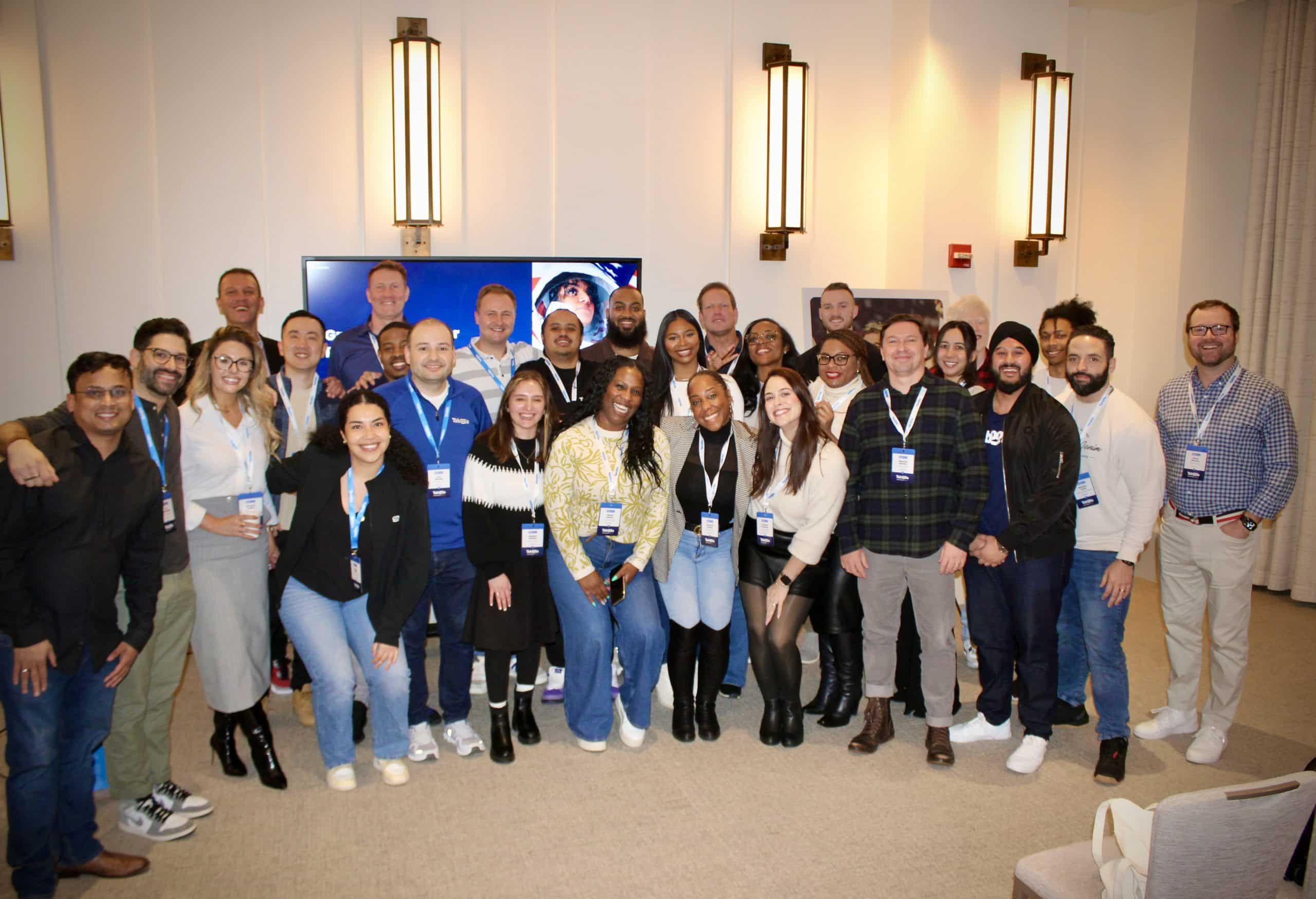When it comes to the impact of Black Lives Matter on the advertising and publishing industry, Nneka Okoli is positive about the changes at Taboola, where she works as a digital marketing specialist. Nevertheless, she says that the industry as a whole has a long way to go.
The founder of Taboola Black, the company’s Black employees’ resource group. The group provides a safe space for Taboola’s Black identifying employees to build a community and share experiences. They also events to help broaden the conversation around diversity in the workplace.
Okoli is particularly excited about the Pull Up For Change initiative; a move to urge companies to transparently share their numbers relating to diversity.
“It’s one thing to say you’re going to increase hiring among minorities and women, but it’s another thing to be very honest about where you are now,” she explains.
“I think that’s something Taboola did very well. Our CEO Adam [Singolda] was very honest in saying: ‘These are numbers as of right now in 2020, and they’re not great,’ but you have to start with that honesty in order to get to that next step,’ so I’m really excited about the future.”
Greater Transparency About Diversity
Okoli sees the launch of Taboola Black as another sign that the needle may be starting to shift in terms of diversity in the industry. “I’ve been at this company for two years,” she explains, “and it’s something that I’ve been trying to initiate for a while. It wasn’t until George Floyd that suddenly we were able to do it.”
Okoli is saddened, however, that it’s taken such a major trauma to raise interest in the experiences of Black employees in many workplaces in the industry.
“It’s like history keeps repeating itself. It’s open lynchings of Black people and now suddenly we’re going to press forward and we’re going to have the Civil Rights Movement. Now we’re having another public lynching of Black people and now we have the Black Lives Matter movement. It’s tiring as a Black person seeing so much trauma, over and over and over again.”
Pushing Past the Inertia in Advertising and Publishing
Despite years of Black people highlighting the need for change, there was previously inertia in the advertising and publishing space, comments Okoli.
It’s different now, and though rehashing trauma isn’t a great foundation, Okoli is prepared to capitalize on the moment and push to get things done at Taboola, and within the industry. She recently organized a panel discussion on Black Lives Matter and the Creative Industries, which took place in October 2020.
“Diversity in advertising really matters because we live in a diverse community, and are members of a global community. Without diversity, it’s easy for minorities to feel like we just don’t see ourselves in the media. It’s not really aligned with reality, and it can have negative effects,” explains Okoli.
Not only does representation matter to Black employees, but it should matter throughout the advertising and publishing industry, she says, pointing out that: “If you do tell a Black story, it’s important that you’re telling it accurately and it’s not a Black story from a white gaze.” That can only happen if creative teams are more diverse.
Stuck in the Messy Middle
Okoli says it’s difficult for Black employees to rise to the top echelons in many advertising and publishing firms.
“When you are a minority in an organization, it’s very easy to get stuck in that messy middle and to not be able to excel at a different level because you don’t have people like you at the C-suite level,” she says.
“Also, there aren’t people advocating for you when it comes to getting that promotion, taking the next step in your career, because they haven’t seen someone who looks like you in that role.
“It almost becomes a self-fulfilling prophecy where it’s hard for women of color and Black people in general to really progress in the professional space.”
The Importance of Networking and Mentoring
For Black employees looking to progress, Okoli recommends networking.
“In my career, I’ve gotten my best opportunities from using my network. Networking is 100% super important, and even more important for Black people.”
Okoli reiterates: “White people do it all the time. We Black people need to use our network, too. You don’t have to struggle by yourself. It doesn’t make you more honorable or more successful if you get there by crawling on your hands and knees. If someone can get you an elevator right to the top, just take it.”
Mentoring is also important, comments Okoli.
“I think Taboola Black will be a really great space to foster Black talent. We’re really looking forward to creating a mentorship program and a space to grow Black employees’ careers here at Taboola.”
Taboola Black is also planning educational activities, such as addressing the stigma of mental illness within the Black community for Mental Health Awareness Month.
Okoli is also looking forward to “celebrating the complexity and the beauty of African and African American culture.” With a Nigerian father and an African American mother, Okoli has a different perspective on Black culture, she explains:
“Black is kind of an umbrella term for me. There are just so many different cultures within the Black community that we can celebrate.”
Overall, Okoli says that Taboola’s employees (especially SVP of People, Kristy Sundjaja) have been very supportive of Taboola Black, and the initiatives it has started. That’s why she’s optimistic about its possibilities.
“I’m really excited to acknowledge the complexities of race,” she says. “I feel like in the community, or the broader, like, American society, it’s so easy for people to get monochromatic. People love to say ‘I don’t see color’, but that’s not the answer. I think it’s bringing all the colors to the rainbow and within our organization.”
Changing Recruitment to Boost Diversity
Okoli is confident that, in the long run, initiatives such as Taboola Black will have a positive effect on diversity in recruitment. “Because we’re doing more things for the Black community, we will be able to attract more Black talent and, hopefully, we will be able to increase our numbers that way,” she says.
Okoli would also like to see hiring practices change to be more welcoming of Black people, and avoid the preconceptions that keep people of color out.
“The idea of the status quo needs to change. There needs to be acceptance and inclusion. It’s so easy for people not to hire someone because of ‘culture fit,’ which is a coded expression for ‘they don’t really look like me and I can’t see myself working with them.'”
She adds: “I think companies need to reevaluate what their culture is and whether that culture is inclusion.”
She says it’s important to look at interview questions, and she’d like to eliminate all-white interview panels (which will happen if top management is more diverse). “It’s kind of intimidating when you’re interviewing back-to-back-to-back and there’s absolutely no one who looks like you,” she highlights.
Focus on Retention of Black Employees
But Okoli is clear that hiring more Black talent is only the beginning. Companies also have to focus on retention, as the turnover of Black employees tends to be high. Even though most Black employees plan to stay in jobs long-term, in many companies the “side comments, microaggressions, and disrespect” make it hard for Black people to stick around, she says.
Finally, Okoli would like to see companies do more than pay lip service to diversity.
“I like the idea of tying bonuses for the senior executive team to meeting diversity, equity, and inclusion goals. People love to talk, but if their salary is tied to how diverse their team is, you will see a radical change in the workplace.”
In honor of Black History Month in the US, Taboola Black is hosting panel webinar, The Need for Diverse Advertising: Why the Black Experience Matters with Taylor Kobryn, Diversity, Equity and Inclusion Leader at Google, Akama Davies, Director, Global Solutions & Innovation at Xaxis, and Ty Heath, Director, Market Engagement at LinkedIn. Join Us!



